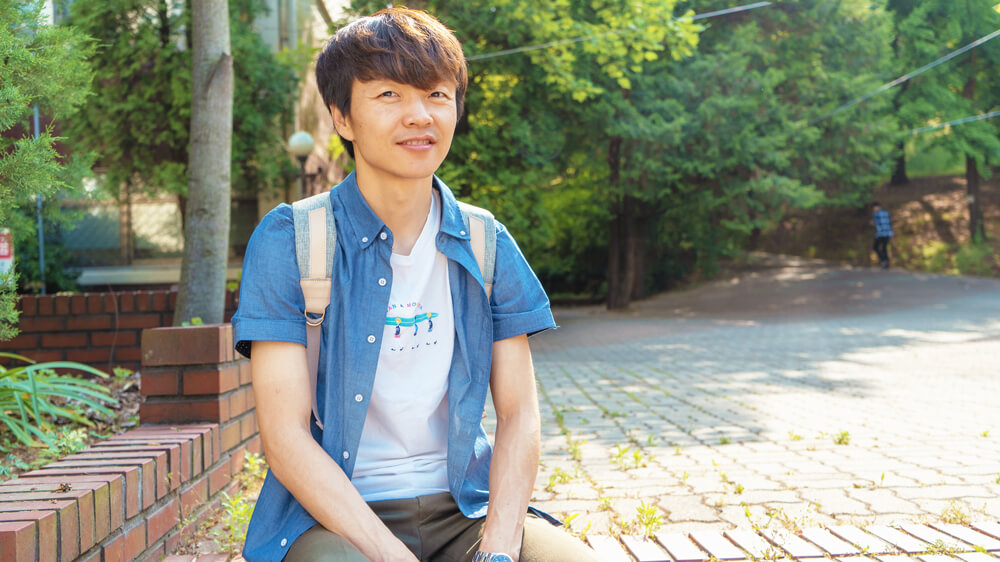Finally Free
I went to Southeast Asia to see where LiNK’s Field Team rescues North Korean refugees. Here’s what I found…

Refugees must cross terrain like this to reach safety in Southeast Asia
We’re on a dirt road weaving around potholes.
On one side, the rice reaches to the horizon. On the other, corn stretches higher than the van.It feels like rural Iowa, but hotter and with palm trees.
The van lurches along, swaying back and forth with the ruts in the road. We’ve been driving for five hours through dense jungle and villages so small that you’d miss them if you blinked. It’s starting to seem like we’re in the middle of nowhere.
We finally coast to a stop and LiNK’s Field Manager points to a steep ravine.
“We’re here,” she says.

“We’ve rescued North Korean refugees right here,” she continues.
For the next hour we stop every couple hundred yards. She points to a field or a patch of trees and recounts stories.Stories of screeching to a stop, sliding open the door, and pulling North Korean refugees into the van.Stories of refugees so dehydrated they barely have the words to ask for water.
Stories of people collapsing in exhaustion, caked in mud and peppered with bruises from the long trek through the jungle.“What do refugees do once they’re in the van?” I ask.“Some start crying, the tears stream down their cheeks. They’re so overwhelmed that they finally made it. Others flash smiles in triumph, soaking in every second.”
I realize we’re not on just any dirt road.

This road meanders along the border. You can’t see the line but throw a stone in a certain direction and it’s likely to land in another country.For North Korean refugees this border means everything. Cross it, and they’re safe. The North Korean regime cannot have them arrested and forcibly returned.The danger is finally gone — evaporated in the sweltering heat and suffocating humidity of Southeast Asia.
For the first time in their entire lives: they are free.
It’s a week later and I’m sitting in an air-conditioned coffee shop that sells overpriced lattes.
I’m back in South Korea to interview a North Korean woman who reached freedom through LiNK’s rescue network.It took her four tries to make it to South Korea.She was arrested twice at the North Korean border and once in China. Each time the punishments seemed unimaginable, but they’re terrifyingly common.She recounts the horrific torture she endured for trying to escape. The way they slammed her head into a nail on the wall. The torment of witnessing cellmates whither away from starvation. The heartbreak of watching her 5-year old daughter being beaten in front of her.I’m trying hard to collect the facts. But hers is one of those stories that hollows you out. Leaving you nauseous and numb.The conversation dwindles. I can see the toll that sharing these stories are having. Her shoulders start to slump. She barely looks up to make eye contact anymore.I pull out my phone and show her a video. Her eyes flash with life.

20 seconds pass and she’s still glued to the phone.
It’s a video of that dirt road. And the exact place where she finally reached freedom. There are corn stalks on the left and a small farmhouse hidden behind palms leaves on the right.“Do you remember this place?” I ask.“How could I ever forget it?” she says without looking up.She’s smiling for the first time all afternoon.
Humans of North Korea: Remembering Why I Crossed That River


If I hadn’t crossed the Tumen River [into China], I’d be dead. My mom was already in China and the food shortages in North Korea were getting worse. I didn’t know where to get food. So I made up my mind to cross the river, but the day before I was supposed to go, the broker looked at the river’s water level and asked, “What if you drown in the middle of the river and die?”
I hesitated a little. Because I really could have died. But I didn’t turn back and I told the broker to send me across. I was so adamant about going that she didn’t stop me. If I had stopped or retreated because I was afraid of the water, I wouldn’t be here today. If I had tried to go back, I would have just died. In North Korea, there was no hope. No hope at all.

The morning I crossed everything was still covered in darkness. While I waited for the soldiers’ watch to end, all I could hear was the sound of the river in front of me.
It was completely black but I thought, if only I can reach the other side I can reunite with my mom.
When I stepped into the icy river I thought if I was going to die here in North Korea or trying to cross, I’d rather die trying to find my mother. That’s why I decided to cross the Tumen River that morning. It’s because of that one moment where I made the decision to cross that I can live my own life today.
Now when I’m having a hard time, I remember that moment when I stepped into the river and remind myself that my life has a purpose. I ask myself, “Why did you cross that river?”
- Pilju, escaped North Korea at 17 years old and reunited with his mom in South Korea.
.jpg)




